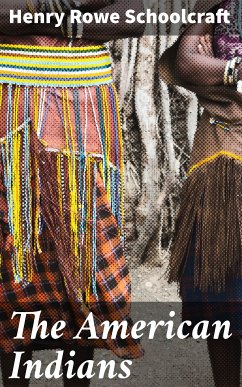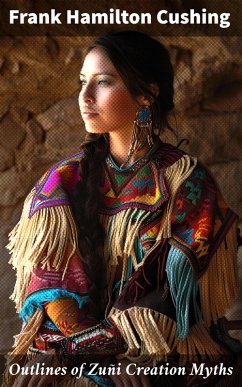
The Social Life of the Blackfoot Indians (eBook, ePUB)
Enriched edition. Exploring the Rich Cultural Traditions of Blackfoot Indians
Kommentar: Benson, Tessa / Redaktion: Good Press
Versandkostenfrei!
Sofort per Download lieferbar
1,99 €
inkl. MwSt.
Weitere Ausgaben:

PAYBACK Punkte
0 °P sammeln!
In "The Social Life of the Blackfoot Indians," Clark Wissler intricately documents the intricate social structures and cultural practices of the Blackfoot people, an Indigenous group of the North American Plains. Employing a methodical anthropological approach, Wissler blends meticulous observation with a narrative style that captures both the unique traditions and everyday life of the Blackfoot. The book stands as a seminal text in early 20th-century anthropology, reflecting the burgeoning interests in cultural relativism and ethnographic research during a time when Indigenous cultures were o...
In "The Social Life of the Blackfoot Indians," Clark Wissler intricately documents the intricate social structures and cultural practices of the Blackfoot people, an Indigenous group of the North American Plains. Employing a methodical anthropological approach, Wissler blends meticulous observation with a narrative style that captures both the unique traditions and everyday life of the Blackfoot. The book stands as a seminal text in early 20th-century anthropology, reflecting the burgeoning interests in cultural relativism and ethnographic research during a time when Indigenous cultures were often misunderstood and marginalized. Clark Wissler, a prominent American anthropologist and member of the American Museum of Natural History, dedicated significant portions of his career to the study of Indigenous cultures. His experiences among the Blackfoot and his deep commitment to understanding their way of life informed this work, which seeks to provide a respectful and accurate representation of a culture often overshadowed in the narratives of American expansion. These first-hand observations juxtaposed against the historical context add to the book's scholarly credibility. For readers intrigued by Indigenous cultures or the development of anthropological thought, Wissler's work is essential. It offers not only an insightful glimpse into the social dynamics of the Blackfoot but also serves as a reminder of the richness and complexity of Indigenous life, advocating for a deeper appreciation of cultural diversity. In this enriched edition, we have carefully created added value for your reading experience: - A succinct Introduction situates the work's timeless appeal and themes. - The Synopsis outlines the central plot, highlighting key developments without spoiling critical twists. - A detailed Historical Context immerses you in the era's events and influences that shaped the writing. - A thorough Analysis dissects symbols, motifs, and character arcs to unearth underlying meanings. - Reflection questions prompt you to engage personally with the work's messages, connecting them to modern life. - Hand-picked Memorable Quotes shine a spotlight on moments of literary brilliance. - Interactive footnotes clarify unusual references, historical allusions, and archaic phrases for an effortless, more informed read.
Dieser Download kann aus rechtlichen Gründen nur mit Rechnungsadresse in A, B, BG, CY, CZ, D, DK, EW, FIN, F, GR, H, IRL, I, LT, L, LR, M, NL, PL, P, R, S, SLO, SK ausgeliefert werden.













